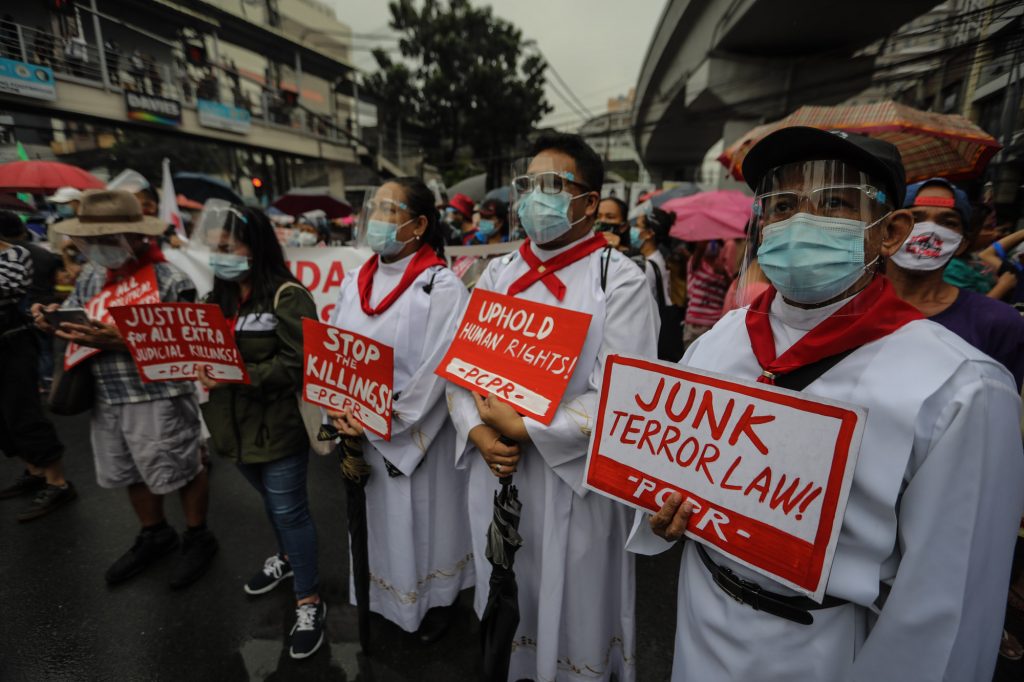
Church leaders in the Philippines have expressed hope that a recent pronouncement by the International Criminal Court (ICC) will end the “unnecessary killings” in the country.
In a report released on Dec. 14, the ICC Office of the Prosecutor noted that there is “a reasonable basis to believe that the crimes against humanity of murder” were committed in connection with the Philippines’ “war on drugs.”
The Office said it is anticipating to reach a decision on whether to seek authorization to open an investigation into the country’s human rights situation in the first half of next year.
Bishop Broderick Pabillo, apostolic administrator of the Archdiocese of Manila, called on the Philippine government to “take the message with seriousness” and to “not fall into denial and counter-accusations.”
The prelate expressed hope that the ICC inquiry would bring justice to the people who “unnecessarily suffered” because of the government’s anti-narcotics campaign.
Bishop Arturo Bastes, retired prelate of the Diocese of Sorsogon, welcomed the report, saying it is “a triumph for the victims of human rights abuses committed by the Duterte government.”
“I hope that the ICC will slap a hard sanction with international force against the Duterte regime,” said the prelate even as he expressed skepticism “how the ICC could enforce sanctions” after the government refused to recognize the tribunal’s jurisdiction.
“Is it enough to just declare Duterte a criminal who can simply do what he likes without undergoing imprisonment or any other penalty for his crimes against humanity?” asked Bishop Bastes?
On Dec. 15, government spokesman Harry Roque said the ICC “can do whatever they want to do,” adding that the government does not recognize the international tribunal.
Roque, who once advocated for the Philippines’ membership in the ICC, said the tribunal can only open a case if a member state will cooperate.
In March 2018, the government has notified the United Nations of its decision to withdraw from the ICC.
The withdrawal took effect in March 2019 although the court can still continue with its investigation into the alleged crimes that happened before the withdrawal.
Bishop Modesto Villasanta of the United Church of Christ in the Philippines said the Philippine government “must take its own initiatives to end violence and human rights violations.”
“Instead of antagonizing international human rights actors, the government must respect basic human rights and protect its people,” he said.
On Dec. 17, the International Coalition for Human Rights in the Philippines launched a campaign dubbed “Investigate PH.”
Peter Murphy, global council chairperson of the coalition, said the initiative aims “to create a space for the international community to ensure that justice is served to victims and their families by providing data to update” the UN report.
He said it will also help “create a favorable climate” for the UN Human Rights Council, the UN General Assembly, and the International Criminal Court to do their work.
During the launching of the campaign, Lee Rhiannon, a former senator of Australia, said the human rights situation in the Philippines “is a global concern.”
“The world community has a responsibility to speak out. We must not allow the call for human rights to be hijacked,” she said.
Rhiannon said it is clear that the human rights attacks on Filipinos have escalated, adding that the “tactics” of the Duterte administration “amounts to state terrorism.”
Among the religious institutions that expressed solidarity and support to the initiative was the United Church of Canada, the United Methodist Church in the United States, and the World Communion of Reformed Churches in Germany.
Source: Licas Philippines
0 Comments